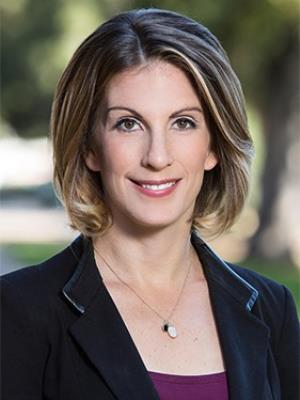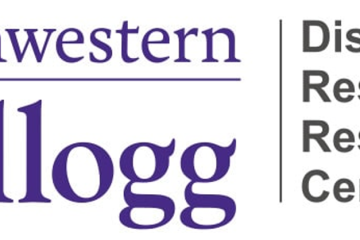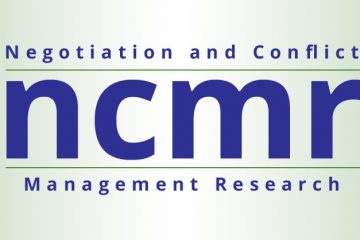IACM VSS: Responding to the Emotions of Others at Work: An Emergent Line of Work

IACM Virtual Seminar Speaker: A Monthly Series on Conflict and Negotiation Research
Responding to the Emotions of Others at Work: An Emergent Line of Work
Click Here to Register for the Session
Professor Lindred Greer, University of Michigan
Moderator: Professor: Jessica Huisi Li
Using “Schedule 1”
45 Minutes
Dec 10 (Friday)
| Time Schedule | # 1 |
| US Pacific | 8:00 AM |
| US Central | 10:00 AM |
| US Eastern | 11:00 AM |
| Amsterdam | 5 P.M. |
| Singapore | 12:00 AM * |
| Melbourne | 3 A.M. * |
| * indicates the next day |
Authors: Christina Bradley and Lindred Greer (also in collaboration across projects with Alisa Yu, Lizzie Baily Wolf, Elizabeth Trinh, & Jeffrey Sanchez-Burks)

Lindred Greer, University of Michigan
Abstract: Emotions have a profound influence on interactions at work. Emotions offer important signals for social learning, cooperation, and goal progress. At the same time, employees often struggle to understand how to respond to the emotional expressions of others at work. Despite strong paradigm development for how an emotional expression impacts individuals, teams, and organizations, research on how individuals can respond (verbally or nonverbally) to the emotions of others is scattered across a variety of sub-domains in both management and psychology (e.g., interpersonal emotion regulation, emotion management, empathy, labeling, stonewalling, etc). To move towards paradigm development, we provide here an overview of our emergent line of work in this area, including an integrative interdisciplinary review of the different subdomains which speak to the question of how to respond to the emotional expressions of others at work in ways which enhance individual, team, and organizational effectiveness as well as the results of several empirical studies in this area. We first present our review which reveals three key challenges in this area of research: fragmentation across disciplinary silos, conflicting assumptions and findings, and a lack of multi-level temporal theory able to account for the dynamics of communicating about the emotions of others at work. We address these three challenges through the introduction of a point of view on how emotions can and should be responded to at work, including separating out key response categories (emotional validation, emotional support, cognitive regulation, and avoidance), identifying sub-strategies within each of these categories, and suggesting a temporal model of optimal reaction to the emotions of others at work. Then, we present the results from several emergent lines of work in this area, including studies on the importance (but infrequency) of responding to emotions of others at work, a multi-dimensional scaling study of lay responses to the emotions of others which we overlay with our theoretical review, and a set of studies on the contextual determinants (ie. hierarchical ranks) of optimal response strategy choice.
Bio: Lindred (Lindy) Greer is an Associate Professor of Management & Organizations at Ross as well as the Faculty Director of the Sanger Leadership Center. Her research focuses on how to lead effective organizational teams, with specific interests in leadership skills in conflict management, diversity and inclusion, power and hierarchy, and the communication of emotions. Lindy has published in top management and psychology research outlets such as Academy of Management Journal, Organization Science, Journal of Applied Psychology, Science, and Proceedings of the National Academy of Sciences, among others. Her work has also been covered in well-known media outlets including the New York Times, Forbes, and Fast Company. She has received awards for her research from the Academy of Management and American Psychological Association, and she was named one of the Top 40 under 40 Business School Professors by Poets and Quants.
Lindy is currently an Associate Editor at the Academy of Management Journal, on the boards of six of the top management and psychology journals, and has served on the boards of professional associations such as the International Association of Conflict Management and the Conflict Management Division of the Academy of Management.
Lindy received her B.S. from the Wharton School of Business at the University of Pennsylvania, and her Ph.D. in social and organizational psychology from Leiden University in the Netherlands.


